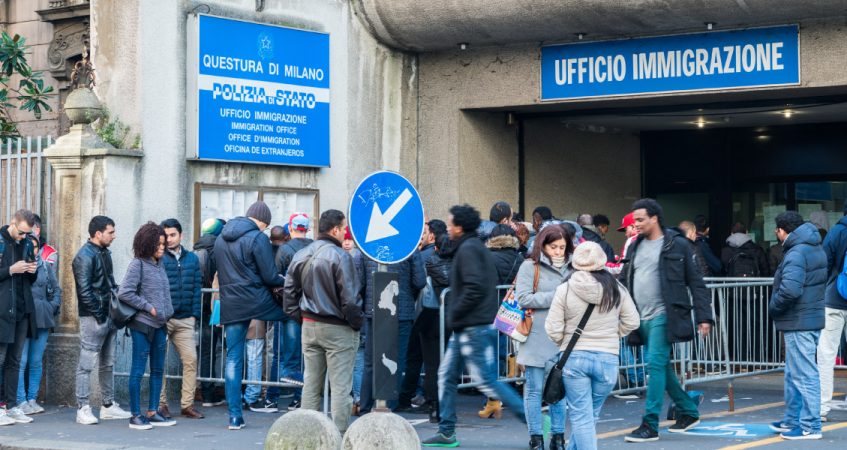GOVERNMENT OF IMMIGRATION AND ITALY-LIBYA MEMORANDUM OF UNDERSTANDING

15/11/2022
Since the second half of the 1970s, with the first survey by Censis and the first trade union conference in Milan, the reality of immigration has been a subject of in-depth study in Italy, finding the interest of the Government and Parliament who have gradually regulated. Above all in the last five years, however, this reality has become a matter of political confrontation and partisan exploitation, such as to obscure the real priority: that of employing all the energies to manage migration politically, overcoming the emergency vision and the related partial measures, in a common European vision.
It is by now known to all that immigration is a structural fact that must be governed, with national and European measures and international agreements, not just limiting itself to contrast. In fact, the governance of immigration requires a broad and farsighted political vision, unity and coherence, harmony with other European countries, multilateral collaboration, agreements with the main countries of origin of the migrants, development partnerships and investments with the countries of the African continent separated by us only by an arm of the sea.
The document by Nino Sergi, Policy Advisor of LINK 2007, addressed in particular to government authorities and Parliament and to those who are open to discussion on such a complex issue, consists of two parts: FOR AN ORDERLY, REGULAR AND SAFE MIGRATION and MEMORANDUM OF INTESA ITALY-LIBYA . It seemed useful to keep them linked because Italy is particularly affected by arrivals from the central Mediterranean, especially from Libya.
Inserting itself into the current debate, the note starts from the contradictions that hold back the definition of a true and effective migration policy to indicate some feasible proposals that make a qualitative leap, both to the political vision itself and to the legislation, in order to be able to govern the immigration in an orderly, smooth and secure manner. Also because the matter, if handled badly, risks increasing social and political tensions.
The emergency and security approach has greatly weakened Italy’s ability to manage immigration in a consistent manner and in harmony with most European countries. Furthermore, the 2002 legislation itself has demonstrated over the twenty years that it is not adequate for governing this complex reality, for Italy’s interests and for its role as a founding country of the European Union and as a credible stimulus in the development of relations with the ‘Africa.
On the Italy-Libya Memorandum of Understanding Sergi presents valid reasons in favor of the urgency of its modification (it can in fact still be agreed with an exchange of notes pursuant to article 7 of the same Memorandum) to make it consistent with the control objectives and containment of irregular arrivals in the safeguarding and protection of people according to the conventions and treaties relating to respect for human rights and the dignity of people that both Italy and Libya have ratified. As it has been implemented since 2017, it represents a serious vulnerability to be repaired as soon as possible and does not even contribute to the containment of irregular immigration. The proposals contained in the document indicate the first steps to be taken immediately.
The note also dwells on the link between migration and development and on the opportunities to be seized and developed in Italy’s and Europe’s relationship with the African continent. It is certainly a good thing that awareness is growing of the need to define together, the EU and the Member States, the quality and breadth of this relationship, even with special cooperation plans: for reasons of proximity, solidarity, political and economic relations , demography, security which, taken together, will make the two continents increasingly interconnected.
